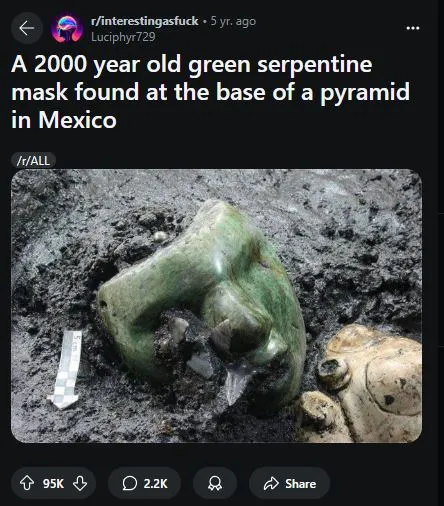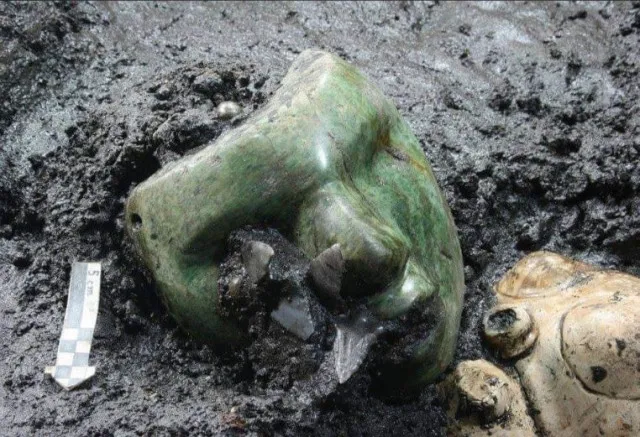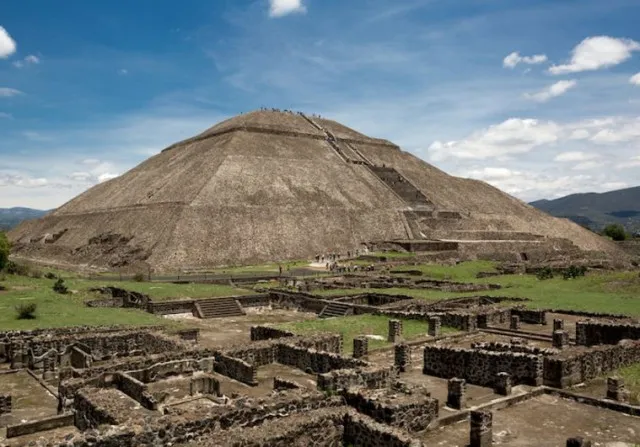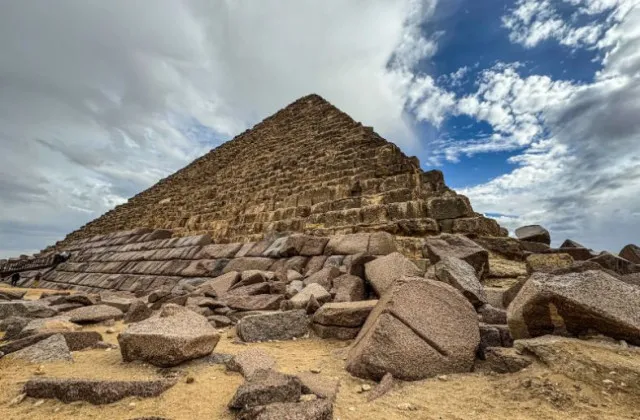A remarkable discovery at the base of Mexico’s Pyramid of the Sun has caught global attention.
Among the artifacts uncovered during a dig was a 2000-year-old green serpentine mask.
Many online have humorously compared it to the iconic movie prop from The Mask.
This find offers valuable insight into ancient rituals while sparking excitement and curiosity worldwide.
A glimpse into the ancient world

The Pyramid of the Sun, located in Teotihuacan, is one of Mexico’s most significant pre-Columbian monuments. Built around 100 CE, this awe-inspiring structure holds secrets from a bygone era.
Archaeologists have long studied the pyramid, but discoveries have been sparse.
However, a 2011 excavation by Mexico’s National Institute of Anthropology and History revealed intriguing artifacts buried deep beneath its base.
2000-year-old mask found at Pyramid
Using tunnels created in the 1930s, researchers reached the pyramid’s mother-rock level.

Here, they uncovered clay pottery shards, animal bones, and three serpentine human figurines.
The standout item was a green serpentine mask. Unlike anything previously found in this region, the mask’s lifelike features suggest it could be a portrait.
Archaeologists believe these items were offerings from an inauguration ritual marking the temple’s construction.
A connection to modern pop culture
Social media users were quick to draw parallels between the mask and Jim Carrey’s character in The Mask.

Comments like “Sssmokin’!” and “Don’t put that on your face!” flooded online discussions, adding a playful twist to the historic discovery.
Teotihuacan’s enduring mysteries
Teotihuacan was a thriving city with a population of over 200,000 at its peak. Despite its prominence, much about the civilization remains unknown, including its original name and reasons for its decline.
The Aztecs, who arrived centuries later, named the pyramid and revered the city as a sacred site. Archaeologists continue to explore its subterranean chambers, including a 49-foot-wide room beneath the temple.

Verónica Ortega, director of the Integral Conservation Project for the Plaza of the Moon, emphasized the site’s importance: “These large offering complexes constitute the sacred heart of the city. What we find here may uncover Teotihuacan’s relationships with other Mesoamerican regions.”
The green mask’s discovery not only deepens our understanding of ancient rituals but also highlights the enduring intrigue of civilizations like Teotihuacan. As archaeologists delve further into these hidden chambers, they inch closer to unraveling the secrets of this ancient metropolis.
While the mask may inspire comparisons to Hollywood, its historical significance is undeniable—a testament to the rich legacy of Mesoamerica.